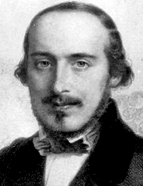

He took advantage of all the effort he had put into preparing the Quadro elementar das relações políticas e diplomáticas de Portugal to start drafting the História de Portugal nos séculos XVII e XVIII (History of Portugal in the 17th and 18th centuries) which would become his most ambitious and probably his most important work. The last thirteen years of his life were devoted to this project, which was subsidized as decreed by a government ordinance of 15 October 1858. Here it was stipulated that the work should be preceded by an introduction which referred to the events that “had led up to the intrusion of the Spanish sovereigns, and the causes which resulted in restoration of the independence of Portugal”. Such a ruling, which reveals the underlying intention to provide the Portuguese people with facts about the “dangers” of a new Iberian union, can be considered nothing other than taking a position against those authors who advocated the fusion of Portugal and Spain along the lines suggested in Sinibaldo de Mas’s thesis. On the very first page of the first volume of História de Portugal nos séculos XVII e XVIII there appeared a “warning” in which the author explained the intention behind the work and the plan that had guided its execution. He undertook to narrate above all “the happenings and their causes; to consider in the light of truth both the people involved and the events; to reflect on the interpretation of the facts through the portrayal of institutions, customs and intellectual culture; [...] not only relating news of sieges and battles” but inquiring into the “meaning and the reasons behind the facts”.
In this work he was able to make use of the full range of his literary resources, writing a fluent and captivating narrative. Although he did not lose sight of the precepts he advocated for constructing historical knowledge, he himself did not always use archival sources, a failing which he remedied by frequently citing very recent and up-to-date national and foreign studies and by the obvious effort he made to include a remarkable number of notes. Thus the great value of this work derives concomitantly from its accessible and captivating style, its methodological rigour and the breadth of the work undertaken. The work studies first the politics and then the institutions and spreads over five volumes. The first volumes follow a markedly chronological approach organized by reigns, which he perorates on systematically, from the infancy of D. Sebastião up until the Restoration and the first measures of governance taken by D. João IV. In the last two volumes he deals with some key topics and provides an analysis that is primarily economic and social.
